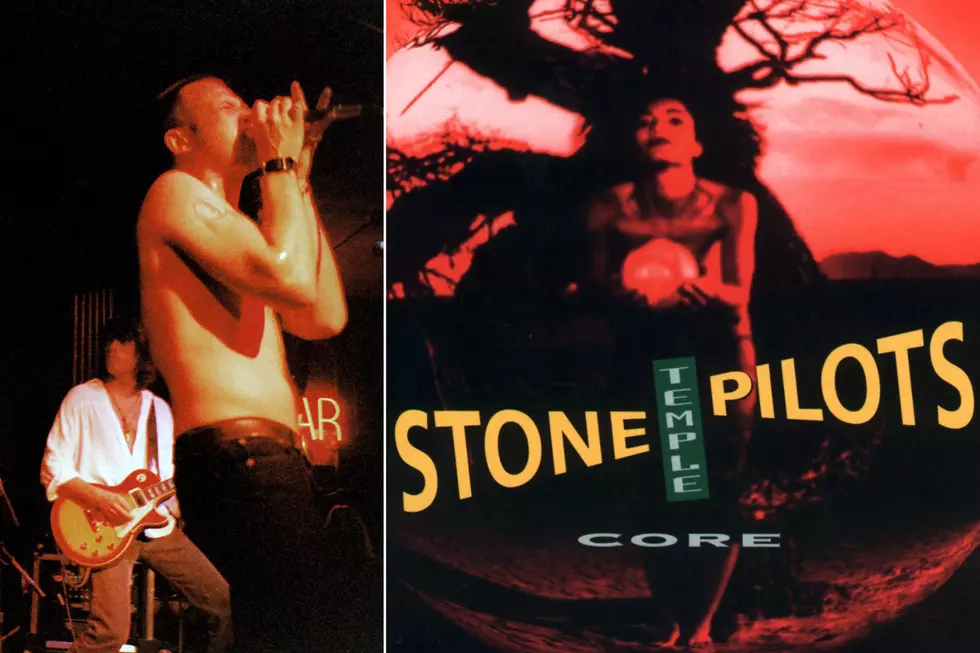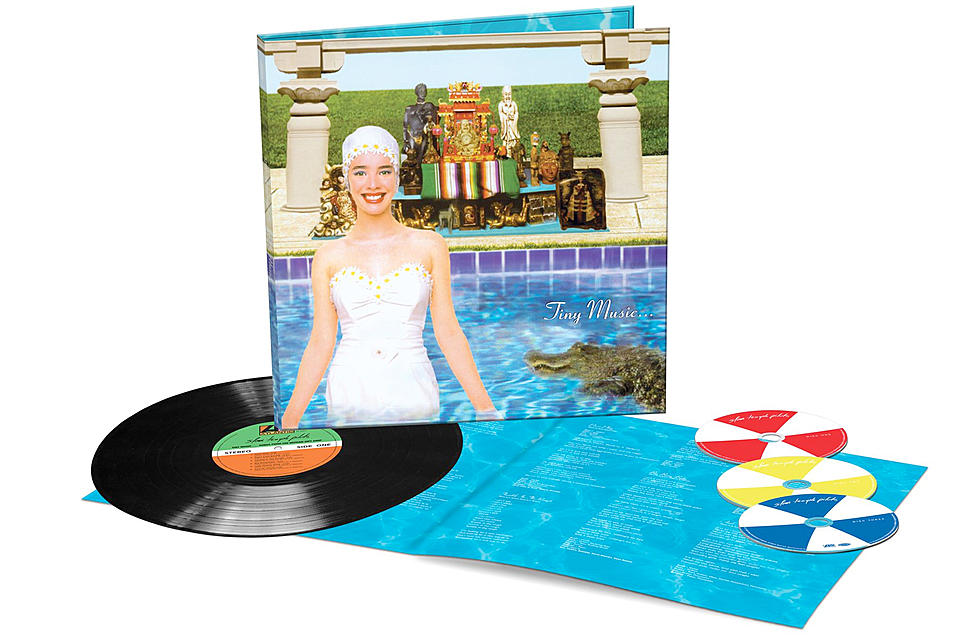
How Stone Temple Pilots Struck Back With ‘Purple’
On June 7, 1994, Stone Temple Pilots silenced their critics with the arrival of a blockbuster sophomore release. Purple promptly entered the Billboard 200 at No. 1, signifying a kind of sweet revenge for the San Diego foursome, who'd endured their share of slings and arrows following the successes of 1992's debut album, Core.
Landing at the crossroads of the then-rising alternative rock scene and quickly fading ‘80s hair metal, STP would be named Worst New Band for 1994 by Rolling Stone. The irrefutable commercial success of Purple, however, solidified their bid for mainstream stardom -- whatever the critics had to say.
They got there with a confident and varied set of tunes, one which was not only more reflective of STP’s versatile songwriting abilities but also went beyond the bounds of hard rock and, at times, copycat grunge exhibited on Core. Yes, there were still echoes of "Sex Type Thing" to be found on the grinding opener "Meat Plow," hypnotic single "Vasoline," or forceful album cuts like "Silvergun Superman" and "Army Ants." But there were also eye-opening departures to be found in the incrementally melodic "Still Remains," the vaguely psychedelic, almost Beatles-esque "Pretty Penny," and the quasi-power pop infectiousness of "Unglued."
Watch Stone Temple Pilots' 'Interstate Love Song' Video
No, Purple wasn’t perfect, and persistent cynics could certainly build their negative cases around occasional misfires like the tiresome, somewhat calculated delicacy of "Big Empty," or Scott Weiland’s ill-advised Anthony Kiedis impression on "Lounge Fly." Then there was the album closer "Kitchenware and Candybars," which bore more than passing resemblance to Pearl Jam’s "Black." But then these same haters would have to explain away the effortless swing of STP's radio and MTV smash "Interstate Love Song," which went on to transcend its time and place as one of the '90s' most irresistible songs.
With Purple, Stone Temple Pilots proved once and for all that they were supremely astute musical shape-shifters, capable of absorbing and then enhancing surrounding commercial trends. The album, as much as any from its era, exemplified the group’s ability to contribute as much as they borrowed.
See Stone Temple Pilots and Other Rockers in the Top 100 Albums of the '90s
More From Q 105.7










